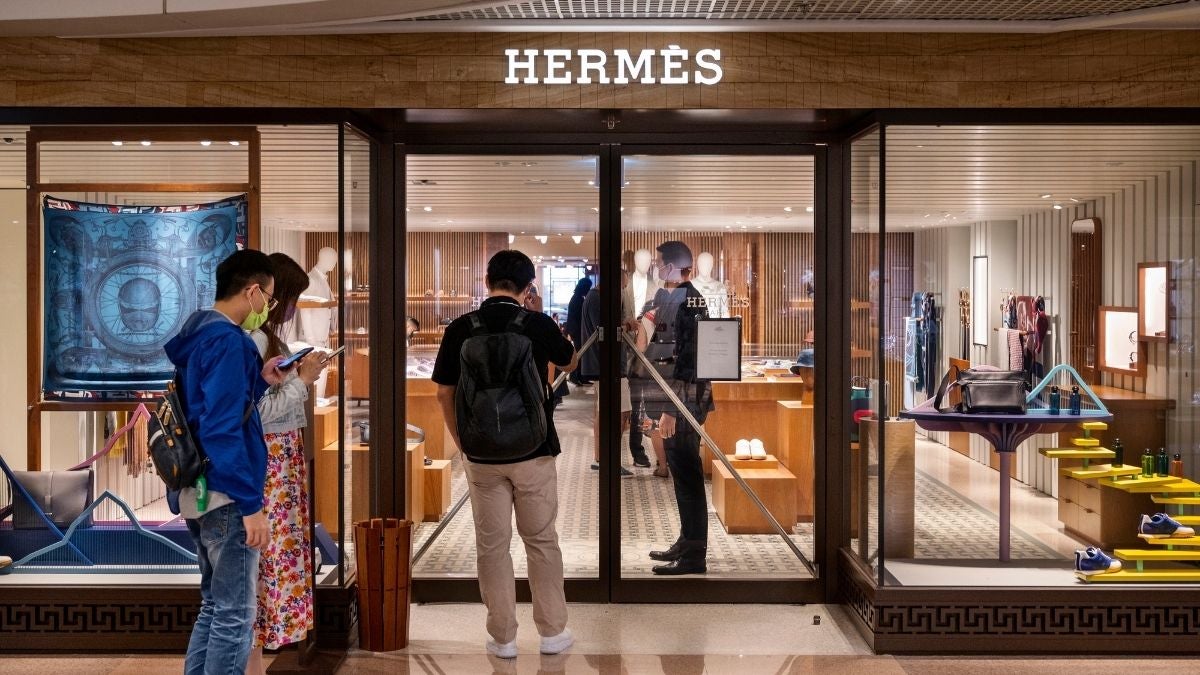
When is an emerging market not an emerging market? The answer is: when it’s leading the way in retail. China, in particular, is innovating more effectively than its rivals in the developed world, especially when it comes to ecommerce.
The Economist Intelligence Unit expects the country to account for about a quarter of all retail sales income generated by the world’s 60 largest markets.
Boosted by the Covid crisis, China’s fast-growing ecommerce sector has attracted 1 billion shoppers, according to consultancy eShopworld.
“Ecommerce retailing is generally considered far more advanced and widely adopted in China than in the rest of the world,” says Zaki Hassan, general manager in Asia Pacific for US-based software firm Aptos Retail. “As modern retail in China is a comparatively recent development, starting only in the 1990s, it doesn’t have the burden of legacy processes, infrastructure and perceptions.”
With their rapid adoption of technology such as artificial intelligence, retailers in cities such as Shanghai, Guangzhou and Shenzhen have more sophisticated offerings than their counterparts in many Western countries can muster. Tax incentives in certain parts of the country are likely to stimulate further innovation.
The Chinese luxury sector is another focus of interest for analysts. The country’s share of the global luxury goods market was 32% last year and is on track to surpass that of the US in the next five years, according to Euromonitor International.
Covid-enforced travel restrictions preventing Chinese citizens from visiting the shopping capitals of the US and Europe have prompted wealthy consumers to spend their money online instead. If you can’t visit a five-star hotel in Paris, say, you can still find solace in a Louis Vuitton handbag. The ecommerce and luxury sectors are converging, with 150 global luxury brands now available on Tmall, part of Alibaba.
President Xi Jinping’s “common prosperity” drive, designed to spread the country’s wealth more widely, doesn’t seem to have spooked retailers. Rather, they’re taking a pragmatic approach, with Alibaba recently committing around £11.4bn to promote Beijing’s levelling-up initiatives.
Ecommerce is the key field in which developed nations can learn from emerging markets, according to Professor Stefan Stein, president of the Gisma Business School in Hannover, Germany.
As modern retail in China is a comparatively recent development, it doesn’t have the burden of legacy processes, infrastructure and perceptions
“The West dwells on data privacy. There’s nothing wrong with this in and of itself, but in implementation it’s often absurd and user-unfriendly,” he argues. “Meanwhile, Asian shopping portals are using next-generation recommender systems whose algorithms are better trained because of the larger volumes of data and the greater numbers of buyers and transactions. The recommender systems of the future are emerging in the Asian retail markets and are operating on mobile platforms.”
India, particularly hard hit by the pandemic, has also seen rapid growth in ecommerce. The country’s online etail sector was worth about £45bn last year and is expected to reach £55bn by 2022, according to Statista.
The Indian government has encouraged foreign direct investment in its digital infrastructure, while the growth of affordable mobile internet providers such as Reliance Jio Infocomm have powered the development of mobile commerce. Meanwhile, fears of Covid infection have driven shoppers to go online to buy everyday essentials as well as luxuries.
The so-called phygital world is also developing fast in India, with Amazon collaborating with existing physical retail networks to provide services such as in-store pick-ups. In March, it began working with 50,000 kiranas, small, family-run shops that cater to local customers. Many of these managed to keep going when supply-chains disruptions caused by Covid lockdown restrictions caused ecommerce operators to hit the buffers.
“India is the place for a massive ecommerce battle between Amazon and Walmart, with local involvement becoming greater,” predicts Charles Allen, global retail research analyst at Bloomberg Intelligence.
And, despite its turbulent political situation, Brazil is also attracting the attention of retailers in the developed world. Fitch Solutions believes that household spending in the country will grow by 4% in real terms next year. An online/physical hybrid form of cash-and-carry food retailing that’s been popular in Brazil for some time is now being exported to Europe and Africa.
Sustainability is another field in which some retailers in emerging markets are leading their counterparts in the developed world, driven in part by consumer demand. A survey published last year by IBM found that 62% of shoppers in emerging markets were willing to change their buying habits to reduce their environmental impact, compared with 54% of their counterparts in mature markets.
An international poll by Avery Dennison found even more striking differences: 74% of Chinese respondents agreed with the statement “I try to buy environmentally friendly fashion products”, compared with 50% in Europe and only 43% in the US.
Allen has been impressed with the progress achieved by numerous innovative companies in other emerging markets, including South Africa, which has “highly developed retail businesses with potential to grow across the continent”. He adds that Poland is also home to several dynamic retailers, such as clothing company LPP and supermarket chain Dino Polska. Russia has some interesting retailers too, especially toy company Detsky Mir and M.video, the country’s largest consumer electronics chain by revenue.
In retail more than any other industry, it’s impossible to lump emerging markets together in one category. Perhaps the only element that members of this dynamic and diverse sector have in common is that almost all can offer lessons to retailers in the developed world.

When is an emerging market not an emerging market? The answer is: when it’s leading the way in retail. China, in particular, is innovating more effectively than its rivals in the developed world, especially when it comes to ecommerce.
The Economist Intelligence Unit expects the country to account for about a quarter of all retail sales income generated by the world’s 60 largest markets.
Boosted by the Covid crisis, China’s fast-growing ecommerce sector has attracted 1 billion shoppers, according to consultancy eShopworld.



